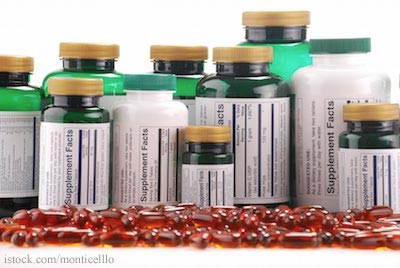For those trying to make good on New Year’s resolutions to lose weight with the help of dietary supplements, the U.S. Food and Drug Administration (FDA) has some advice: beware.
 The FDA doesn’t evaluate supplements before they enter the market. Manufacturers are responsible for ensuring that their products are safe. Unfortunately, not all of them do.
The FDA doesn’t evaluate supplements before they enter the market. Manufacturers are responsible for ensuring that their products are safe. Unfortunately, not all of them do.
In fact, many of these products contain undeclared ingredients that pose health hazards for those with certain medical conditions and interfere with prescription medications. Others have been found to contain banned drugs such as sibutramine, an ingredient in an FDA-approved drug called Meridia, which was removed from the market in October 2010 after being linked to heart problems and strokes.
The FDA has received dozens of reports of adverse health events associated with dietary supplements sold as weight loss products, including increased blood pressure, racing heart, stroke, seizure and death.
During 2014, the agency issued seven recalls and more than 30 public notifications about these products. It also maintains an online list of tainted weight-loss products.
Warnings signs of tainted products are those that include quick fix claims such as “lose 10 pounds in one week;” those that use the words “guaranteed” or “scientific breakthrough;” those that are marketed in a foreign language or through mass e-mails; and marketed as herbal or natural alternatives to an FDA-approved drug or as having effects similar to prescription drugs. One example is bee pollen products.
The FDA advise those who are interested in creating a weight loss plan to talk with their doctors.





Many prescription drugs for weight loss are even riskier then some supplements. There really is no quick-fix. Better to eat a healthier diet and excercise to try to lose excess pounds.. May take a bit longer to lose weight, but is so much safer in the long run. Many people who are overweight, or unable to lose if they are, may have thyroid or other diseases that needs to be treated first.